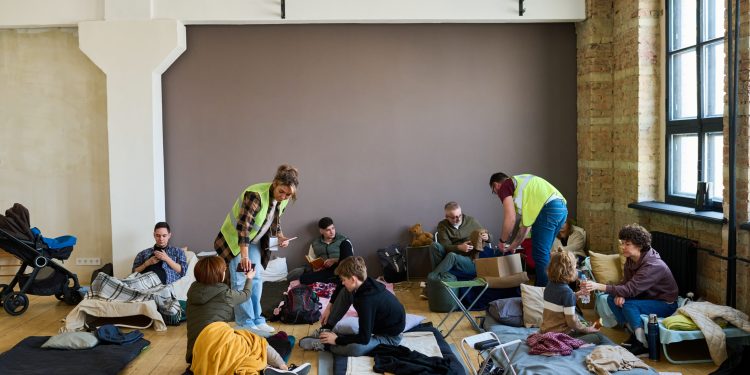Refugees and Mental Health the United Nations estimated that there are 25 million refugees and three million asylum seekers worldwide. There are thought to be around 40 million internally displaced persons, who have fled their homes but still live in their country of origin. These numbers are growing. Involuntary migrants are likely to experience distress. This may be caused by the situation in their country of origin, having to abandon their home, the migration journey, and the process of settling in a new environment or country. Stress can lead to mental health problems such as depression, anxiety, and worse traumatic stress disorder known as PTSD.
Although we know quite a lot about mental health promotion, prevention, and treatment for mental health problems, these interventions may work differently for involuntary migrants than for the general population. Different teams of researchers gathered evidence from systematic reviews on what works for the promotion of mental health and the prevention and treatment of common mental disorders among refugees, asylum seekers, and internally displaced persons. The authors found 23 systematic reviews regarding the same. There were also 15 reviews for which there were no results yet, but a protocol had been published online. The authors found that there was more evidence for some settings, population groups, and mental health problems than others.
Approaching Conversations Around Mental Health
It can be helpful to start by connecting with the person by considering them without the labels of refugee and mental health. For example, consider them as a human being first and a refugee second. Consider safety, which would include psychological and physical safety as they have come from environments off their homeland and making a journey in which they have not been safe at all. Establish trust as they have been betrayed by those they trusted. This often includes the government of their country, who much like a parent was responsible for protecting them it’s now doing the very opposite and actively oppressing them.
What makes us trustworthy is our explanation of the claims of what we do and being transparent at all times and what we’re going to provide them with. We can establish a therapeutic relationship with an attitude of respect, a warm tone of voice, and full attention demonstrating that we care and appreciate who they are, which can help them to feel accepted. Acknowledge and validate their experience. In most cases, mental health carries a stigma and refugee people may have cultural and religious interpretations of that experience, and we must respect these.
Another conversation that is common when working with asylum-seeking men is about their role as the protector and provider of the family. Many are told at an early age that they need to be strong and therefore have not had the opportunity or permission to talk about their mental health needs. So, we must encourage them and be supportive of them to do so.
Using a Cultural Lens
We believe that it’s important to consider the subject of mental health using a cultural lens and to be sensitive to how mental health or realness may be stigmatized and seen as a cause of shame. It is understandable if they’ve become overwhelmed with feelings of loss, separation, and indeed bereavement. In addition, many have had traumatic experiences during the dangerous journey. As a result of all of this, they may present with symptoms of depression, anxiety, and those associated with post-traumatic stress disorder.
Refugee mental distress is not typically a result of dysfunctional patterns of relating developed from early relationship issues. In particular, women go through gender-specific violence which can include FGM, sexual violence, and trafficking. For these reasons, it can be helpful to reframe their experience of psychological distress as a normal response to an abnormal event of persecution. It’s important to be mindful of the pathological models to ensure that their experiences are described as mental distress rather than mental illness.
Psychoeducation on the importance of helping the person understand the symptoms and empowering them with coping skills, physical exercises, and mindfulness skills that can include breathing exercises and body scans. We know there are many people in organizations supporting those who have been affected, and we recognize that this is an incredibly challenging time for professionals and volunteers alike working in this space. So, we all must communicate with each other for the benefit of the person.











Discussion about this post